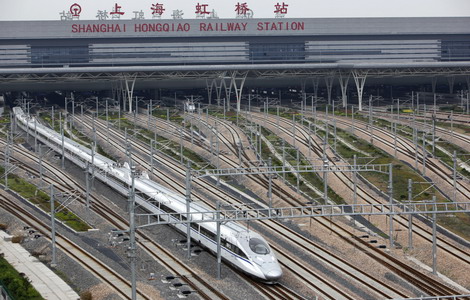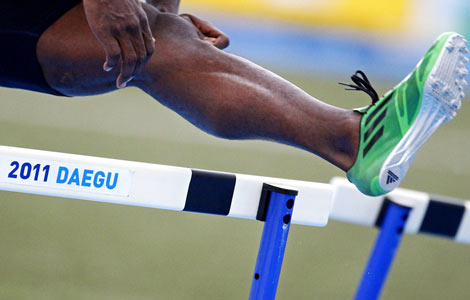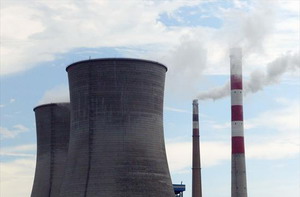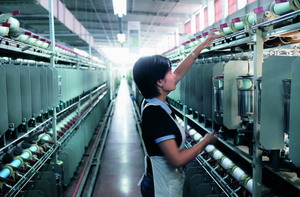Just the ticket for travelers?
Updated: 2011-08-24 10:01
By Wang Ying (China Daily)
|
|||||||||||
|
 |
|
A CRH380A train pulls out of Hongqiao Station during a test run on the Beijing-Shanghai high-speed railway. Analysts said that rail and air, two crucial sectors, will each discover their proper strengths and customers and prosper in their respective niche markets. [Photo / Bloomberg] |
A daily average of 254,000 passengers traveled between Beijing and Shanghai by rail (both regular and high-speed services) in July, a rise of 58.8 percent from June, said MOR.
The competition between railways and civil aviation is set to grow fiercer as four vertical (north to south) and four horizontal (east to west) railway networks are currently under construction, aiming to serve the nation's most prosperous and populous areas.
"The flight between Beijing and Shanghai is most affected by the Beijing-Shanghai high-speed railway," said He Li, vice-president of Air China, at an aviation forum in July.
Air China and China Eastern dominate the Beijing-Shanghai air route. Their combined market share exceeds 90 percent, leaving less than 10 percent for China Southern Airlines Co Ltd and Hainan Airlines Co Ltd to fight over, according to Li Lei, an industrial analyst from CITIC China Securities Co Ltd.
Li said the ticket price of the high-speed railway is lower than that of airlines, which means that some passengers will always elect to travel by train.
However, in the long run, the railways and air carriers will strike a balance and register organic growth, because of their respective strengths and weaknesses, he added.
Currently, the high-speed train is attracting travelers because of its lower prices and better levels of punctuality, while the aviation companies are maintaining their customer base because of the convenience of the mode of transport.
"I have tried both the plane and high-speed train before and I prefer to take the high-speed railway," said Wang Chuan, a director of a public relations management company, who travels between Beijing and Shanghai once every two weeks.
"The high-speed railway offers a higher frequency of trains, which fits my schedule better. It helps me to manage my time more efficiently," she said. Wang added that she also prefers to take the train because, unlike air travel, there is no need to book a ticket in advance, and because flights are often delayed.
The punctuality rate of flights is poor: Statistics from the Civil Aviation Administration of China show only 77.2 percent of flights arrived on schedule in 2010, thus extending the passengers' actual traveling time.
Moreover, the high cost of high-speed rail construction won't always mean expensive tickets. Once the cost of high-speed train travel falls, more long-distance flights (greater than 1,000 kms) will be challenged by the rail network.
Lu Yu, a student at Shanghai's Fudan University, said she prefers air travel. "As long as I can buy the tickets at a discount, the cost of an airplane ticket is almost the same as a high-speed railway ticket," she said. Lu comes from Beijing, and travels between the two cities twice every semester.
"The railways have recently been the subject of public criticism for their poor service and frequent interruptions, so people tend to prefer planes," said a government adviser, who spoke on condition of anonymity.
The MOR has put so many newly constructed routes into use over such a short period of time, that the punctuality rate for rail travel will definitely be affected by teething troubles, said Li.
According to Li, this negative influence will last for one or two years, which will provide a competitive advantage for civil aviation.
Related Stories
More high-speed trains slow down to improve safety 2011-08-23 14:34
Taking a dream train journey, after 20 years 2011-08-17 09:57
Chinese airlines hike fuel surcharge to record high 2011-08-02 15:26
China's civil aviation reports profit surge 2011-01-12 10:00
- China's software industry revenue up 31.4% in July
- China aims to start yuan FDI trial from Sept
- China's Renren signs agreement with MSN
- China should stick to prudent monetary policy
- China grants QFII status to BlackRock, Amundi
- German group drawn by China's vehicle ambitions
- Overseas energy deals 'require caution'
- Time running out for third-party payment firms













